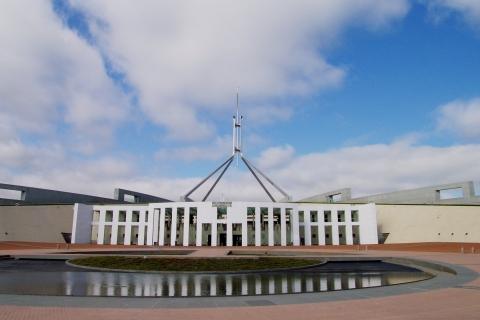Will there be anything left of the Australian telecommunications industry if the government signs up to a secret trade deal? The ramifications are discussed in Business Spectator. A recently leaked draft of the international Trade in Services Agreement (TISA) highlights how the Australian government’s decision to rollout a Multi-Technology Mix (MTM) National Broadband Network (NBN) relegates Australia to third world technology status, with little or no opportunity to become a leader in the global digital economy.
Read the full article below
A recently leaked draft of the international Trade in Services Agreement (TISA) highlights how the Australian government’s decision to rollout a Multi-Technology Mix (MTM) National Broadband Network (NBN) relegates Australia to third world technology status, with little or no opportunity to become a leader in the global digital economy.
Entering into an international trade deal is always a tricky business because it is easy to get swept up in the euphoria rather than focusing on what the outcomes will be. Australians are wary of governments signing up to international trade agreements that give other nations and multi-nationals the upper hand.
TISA has the potential to affect every aspect of life in Australia due to the very nature of international trade agreements that restrict a nation’s ability to put in place legislation that would take it away from the core fundamentals of the trade agreement.
Australia, not dissimilar to many other nations, is struggling with a taxation system that needs to be rebuilt from the ground up. Until such time that the government can adequately tax multi-nationals and prevent the use of offshore “trade hubs” and “tax shelters” Australians should have little reason to trust the government to do the right thing with such an important new trade agreement.
Introducing GST on purchases made online is only a partial solution to the problem because international companies doing business in Australia will continue to avoid paying tax unless the government takes the bold step to introduce a direct tax on international electronic funds transfers including credit card payments. Asking an international company not located in Australia to pay tax utilising an antiquated pre-digital economy approach is proving to be an exercise in futility.
Trade agreements can be advantageous if you’re entering into the agreement with a position of strength and in telecommunications, Australia is far from being a world leader.
The government might be trying to leverage TISA as an opportunity to clean up the telecommunications legislation and regulations and turn Australia into a regional hub for the global digital economy. But for that to happen Australia needs to have telecommunications infrastructure that will support new and innovative services being provided locally and internationally.
Depending on the source Australia has a national internet penetration of between 80-90 per cent making Australia one of the most digitally connected countries in the world, butThe Akamai State of the Internet Report for Q4 2014 identified that Australia is languishing far below our major competitors within the region and around the world.


Some may turn to Cisco’s 10th annual Visual Networking Index (VNI) for Australia to find solace in the prediction that “IP traffic in Australia will increase three-fold by 2019, with a compound annual growth rate of 22 per cent. IP traffic will reach 1.4 exabytes per month in 2019, up from 499 petabytes per month in 2014” and that “the average fixed broadband speed will grow 2.4-fold from 2014 to 2019, from 18.3 Mbps to 44 Mbps.”
Cisco went on to state that “It expects 75 per cent of fixed broadband connections to be faster than 5 Mbps in 2019, up from 59 per cent today, while the average internet user will generate 41.9 gigabytes of internet traffic per month in 2019 up from 15.7 gigabytes per month in 2014.”
Cisco’s predictions are a dire warning that Australia’s rate of internet connection speed increase will be far less than that enjoyed by consumers and business in the now more than 100 countries rolling out FTTP. If Australia continues with the FTTN VDSL2/vectoring rollout by 2025 we can expect to be more than an order of magnitude worse off than we are now compared to countries rolling out FTTP.
So when we look at TISA we need to do so in the context that investors and business will look at Australia and see a nation that is rapidly moving backwards.
This does not mean there will be no foreign investment in the telecommunications industry under the TISA regime because Australian internet usage is rapidly growing and there is a near saturation participation in the digital world making Australia a lucrative market. And coupled with this is the TISA provision for no limits to foreign ownership of telecommunications companies and this means that the opportunity to takeover Telstra and thereby have a large say in Australia’s telecommunications future could potentially come on the radar for any number of multinationals.
What this means is that if Australia signs up to TISA then Telstra would need to be split into retail and wholesale companies before TISA comes into force and legislation put in place effectively removing the new wholesale entities ability to prevent or levy unreasonable charges on companies wanting to utilise exchanges, pits, ducts and other plant and infrastructure to rollout competitive infrastructure.
TISA does not appear to specifically address Australia’s telecommunications universal service but would it be wrong to interpret the thrust of TISA to be an open competitive market driven approach that looks to limit or prevent social democratic outcomes like the universal service?
The NBN could be another significant foreign target. While it is currently protected under current legislation and can only be sold off if the NBN is completed or if it is not completed after December 31 2020. Would it be in the national interest for NBN to be sold to a foreign government through a state owned enterprise or would the government look to disaggregate the NBN and sell of its component parts? Ostensibly, a foreign government flush with cash could use a state owned enterprise to purchase each of the disaggregated NBN entities under TISA as it now stands.
Other telecommunications related provisions in TISA read like a wishlist that is anything but advantageous to our national interest. TISA includes a ban on preventing data (including metadata) from being stored outside a nation’s borders, protection for net neutrality as it has been adopted in the US, and a limit on how site blocking and permissive service blocking provisions can be applied to prevent consumers from accessing specific internet locations.
TISA also looks to block demands by nations to see the source code within telecommunication devices unless the telecommunication devices are to be used as “critical infrastructure.” The major US telecommunication equipment vendors that provided the US NSA with a backdoor to key telecommunications systems and were outed by Edward Snowden now have the temerity to demand through TISA that national security concerns should be set aside if a nation decides to sign up to an international trade agreement.
And does this mean that the ban on Huawei participating in the NBN would be set aside because the NBN is unlikely to be deemed “critical infrastructure” under TISA.
Now that TISA is out in the open there will be public scrutiny of its provisions and debate about whether Australia should participate, but from a telecommunications perspective there is nothing that appears to be of benefit to Australia and there is a strong possibility that the local telecommunications industry may become yet another Australian industry that’s dominated by foreign multinationals.
Mark Gregory is a senior lecturer in the School of Electrical and Computer Engineering at RMIT University.





